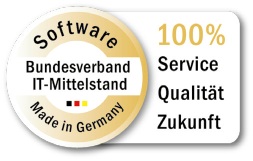Electrostatic Hazards (12 Topics from Practice)
THIS SERIES BY THE ELECTROSTATIC EXPERTS SYLVIA & GÜNTER LÜTTGENS IMPARTS BASIC KNOWLEDGE WITH THE USE OF ANIMATIONS AND EXPERIMENTS.
The “T” series is tailored to master craftsmen, technicians, engineers and specially to safety officers.
Content of this sam® training course:
-
Fire and explosion hazards: This course explains why fire and explosion hazards occur.
-
Formation of electrostatic charge: Test procedures show how electrostatic charges occur.
-
Induction: What does induction mean and how does it occur? You find answers in this training course.
-
Resistor – amount of charge: What influence does the electrical resistance have on the amount of charge?
-
Gas discharges: The training course about gas discharges (corona, brush, spark, cone discharges)
-
Zones + Categories: This course informs about hazard zones, hazard categories and risk observation.
-
Measurement methods: Voltage/current principle, protective ring circuit, specific volume resistance surface resistance and much more.
-
Measurement methods: Which measurement methods are suitable? And which are not suitable? The electric field meter, the charge transfer measurement and the manual coulombmeter are explained in this training.
-
Flowing fluids: This topic informs under which circumstances liquids become charged.
-
Rigid Intermediate Bulk Container (filling, emptying, stirring): Avoidance of electrostatic ignition hazards when using a RIBIC.
-
Optimization of charge neutralization: How ionizers can lead to charge neutralization (when handling films).
-
Cleaning plastic drums: This topic shows charging experiments with water.




